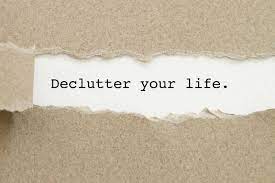
No, if someone blocks you, it does not necessarily mean that they love you. In fact, it may indicate the opposite – that they do not want to have any contact with you.
Blocking someone may be done for a variety of reasons, including to protect oneself from emotional harm or harassment, to end a relationship or communication, or to assert boundaries. It may be a sign that the person blocking you is prioritizing their own well-being and mental health by removing themselves from a situation that is causing them distress or discomfort.
While it is understandable to wonder why someone has blocked you, it is important to respect your decision and your boundaries. It is not helpful to assume that being blocked is a sign of love or to try to contact the person in question through other means. Instead, it is important to focus on your own well-being and move on from the situation in a healthy and respectful way.
Is being unstable or emotionally immature one of the reasons why she blocks you?

It is not necessarily accurate to assume that someone who blocks you is unstable or emotionally immature. There can be a variety of reasons why someone chooses to block another person, and it is not always a reflection of their character or emotional stability.
Some possible reasons why someone might choose to block another person could include feeling overwhelmed or stressed, needing space to process their emotions, protecting themselves from harassment or abuse, or setting boundaries in a relationship that is no longer healthy or fulfilling for them.
It is important to approach these situations with empathy and understanding and to avoid making assumptions about the motivations behind someone’s actions. If you are concerned about someone’s emotional well-being or mental health, it may be helpful to reach out to them and offer support or encourage them to seek professional help if necessary.
Ultimately, it is not productive to label someone as “unstable” or “emotionally immature” based solely on the fact that they chose to block you. Everyone has their own unique experiences and struggles, and it is important to approach each situation with compassion and respect.
What if she suddenly blocked you and there were no signs of trouble?

If someone suddenly blocks you and there were no signs of trouble or issues in your relationship, it can be confusing and upsetting. However, it is important to respect the other person’s decision to block you and not jump to conclusions or make assumptions about why it happened.
It is possible that the person may have had a sudden change of heart, decided they needed space or time to reflect on things or were dealing with personal issues that you were not aware of. It is also possible that there may have been misunderstandings or miscommunications that led to the decision to block you.
If you are concerned or confused about why someone suddenly blocked you, it may be helpful to try to reach out to them in a respectful and non-confrontational manner. This could involve sending a brief message expressing your concern and asking if there was anything that happened that you were not aware of. However, it is important to respect their decision to block you and not to pressure them to respond or to continue contacting them if they do not want to.
If someone has chosen to block you and is not willing to engage in further communication, it may be necessary to accept this decision and focus on your own well-being and move on from the situation.
The proper way to react if someone blocks you…
If someone blocks you, it can be a difficult and emotional experience. Here are some suggestions on how to react:
- Take a step back: It can be tempting to try to reach out to the person who blocked you, but it is important to give them space and respect their boundaries. Taking a step back can also give you time to process your own emotions and reactions to the situation.
- Avoid making assumptions: It is important not to jump to conclusions or make assumptions about why the person chose to block you. Instead, focus on the facts and the behavior you have observed.
- Focus on self-care: It can be helpful to focus on taking care of yourself and engaging in activities that bring you joy and help you cope with stress and difficult emotions.
- Seek support: If you are feeling overwhelmed or upset, it can be helpful to reach out to friends, family, or a professional therapist or counselor for support and guidance.
- Respect their decision: It is important to respect the other person’s decision to block you and to avoid attempting to contact them through other means. It is their right to set boundaries and decide who they want to communicate with.
While being blocked can be a difficult experience, it is important to focus on your own well-being and respect the other person’s boundaries and decisions. With time and self-care, it is possible to move on from the situation and find peace and happiness in your life.
The positive of her blocking you…
While being blocked by someone can be a difficult and painful experience, there are some potentially positive aspects to consider:
- Closure: Being blocked may provide a sense of closure to a relationship or situation that was causing you stress or discomfort. It can be a clear sign that the other person is not interested in continuing the relationship or communication, which can help you move on and focus on other aspects of your life.
- Self-growth: Being blocked can be a learning experience that helps you develop stronger personal boundaries and communication skills. It may also encourage you to reflect on your own behaviors and attitudes in relationships and to work on personal growth and self-improvement.
- Time and space: Being blocked can provide an opportunity for you to take time and space to focus on yourself and your own well-being. This may involve engaging in self-care activities, pursuing hobbies or interests, or spending time with friends and family.
- Healthy communication: Being blocked can encourage you to seek out healthier communication patterns and relationships in the future. It can be a reminder to prioritize respectful communication, clear boundaries, and mutual respect in all of your relationships.
Ultimately, while being blocked can be a difficult experience, it can also provide opportunities for personal growth and self-reflection. By focusing on the positive aspects of the situation and taking steps to care for yourself, you can move forward in a healthy and positive way.
How do you determine when it’s over?
Determining when a relationship is over can be a difficult and emotional process. Here are some signs that may indicate that a relationship is coming to an end:
- Lack of communication: Communication is a vital component of any healthy relationship. If you or your partner are no longer communicating with each other or if there is a breakdown in communication, it may indicate that the relationship is in trouble.
- Loss of intimacy: Physical and emotional intimacy are important aspects of any relationship. If you or your partner are no longer interested in physical or emotional intimacy or if you have lost the desire to be close to each other, it may indicate that the relationship is coming to an end.
- Constant arguing: Occasional disagreements are a normal part of any relationship, but if you and your partner are constantly arguing or if your arguments are becoming increasingly hostile or destructive, it may be a sign that the relationship is not working.
- Lack of trust: Trust is a critical component of any relationship. If you or your partner are no longer able to trust each other or if there have been breaches of trust, it may be a sign that the relationship is over.
- Feeling unhappy or unfulfilled: If you or your partner are no longer happy in the relationship or if you feel unfulfilled or unsatisfied, it may be a sign that it is time to move on.
The decision to end a relationship is a personal one and will depend on your unique circumstances and feelings. If you are unsure whether your relationship is over, it may be helpful to seek the guidance of a trusted friend or professional therapist to help you work through your emotions and make a decision that is right for you.
How can you heal?
Healing after a relationship has ended can be a difficult and emotional process, but there are steps you can take to help yourself move forward:
- Allow yourself to grieve: The end of a relationship can be a loss, and it is important to give yourself time to grieve and process your emotions. Allow yourself to feel your emotions and express them in healthy ways, such as through journaling or talking to a trusted friend or therapist.
- Take care of yourself: It is important to prioritize self-care during this time. This may involve engaging in physical activities you enjoy, eating a healthy diet, getting enough sleep, and engaging in activities that bring you joy and help you relax.
- Practice mindfulness: Mindfulness can be a helpful tool for managing difficult emotions and reducing stress. Consider practicing mindfulness meditation or other mindfulness techniques to help you stay present and centered.
- Seek support: It can be helpful to reach out to friends, family, or a professional therapist or counselor for support and guidance. Consider joining a support group for people who have gone through similar experiences.
- Focus on personal growth: Use this time to focus on your personal growth and development. This may involve pursuing hobbies or interests, learning new skills, or setting personal goals for yourself.
- Avoid self-blame: It is important to avoid blaming yourself for the end of the relationship. Remember that relationships involve two people, and that it takes effort from both parties to make a relationship work.
Remember that healing is a process, and that it may take time to fully move on from the end of a relationship. Be patient with yourself, and focus on taking small steps towards healing and growth every day.



